
- Все
- Экономика и бизнес
- Промышленность
- СМИ и индустрия развлечений
- Издательская деятельность и журналистика
Бесплатный фрагмент - Suzdal. The Golden Ring of Russia. Photobook
Preface
Suzdal is an ancient Russian city in the Vladimir region. It has become a nature reserve city and is considered the pearl of the Golden Ring of Russia.
Suzdal was founded in 1024, received the status of a city in 1778.
The historical name of the city of Sugdal.
Suzdal became a museum city in 1967, it became popular thanks to the Moscow journalist Yuri Bychkov.
In 1974, Suzdal received the Order "Badge of Honor" for the preservation of cultural heritage and the development of tourism.
In 1982, the International Federation of Journalists and Writers who Write about Tourism awarded Suzdal the Golden Apple prize for services to the development of international tourism.
In 1992, UNESCO included the white stone monuments of Suzdal in the list of World Heritage Sites.
In Suzdal, it is quiet and calm, the measured pace of life. The townspeople are not in a hurry, they are not running anywhere.
Tourists come to Suzdal to see the city and take a break from the hustle and bustle of the world.
The city consists of two parts: the Kremlin and the Posad.
The territory of the Kremlin is bounded by ramparts, the buildings behind the ramparts belong to the posad.
In Suzdal, you can admire the beauty of nature and sunsets. The city has preserved meadows, a river, there are no copses.
Architecture of Suzdal
Suzdal is an ancient city with interesting architecture. Building built in the 17th and 19th centuries have been preserved in Suzdal.
The architectural ensemble of the city includes the Kremlin, monasteries, churches and residential buildings.
The main square of Suzdal
The Shopping Square in Suzdal is the most popular place among tourists.
The are two paired temples on the square.
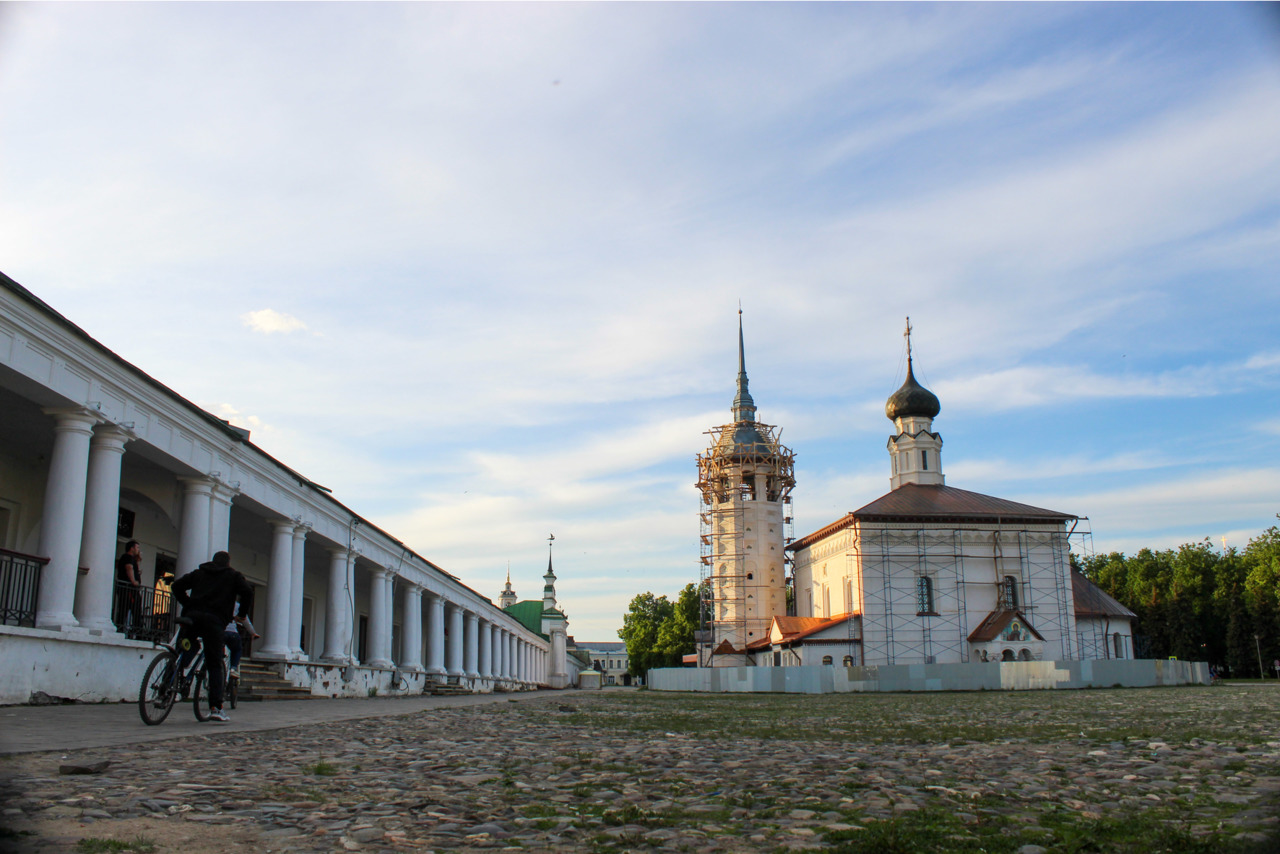
A Number of Commercial buildings were built in 1811. The architectural style is Empire, the buildings are decorated with columns.
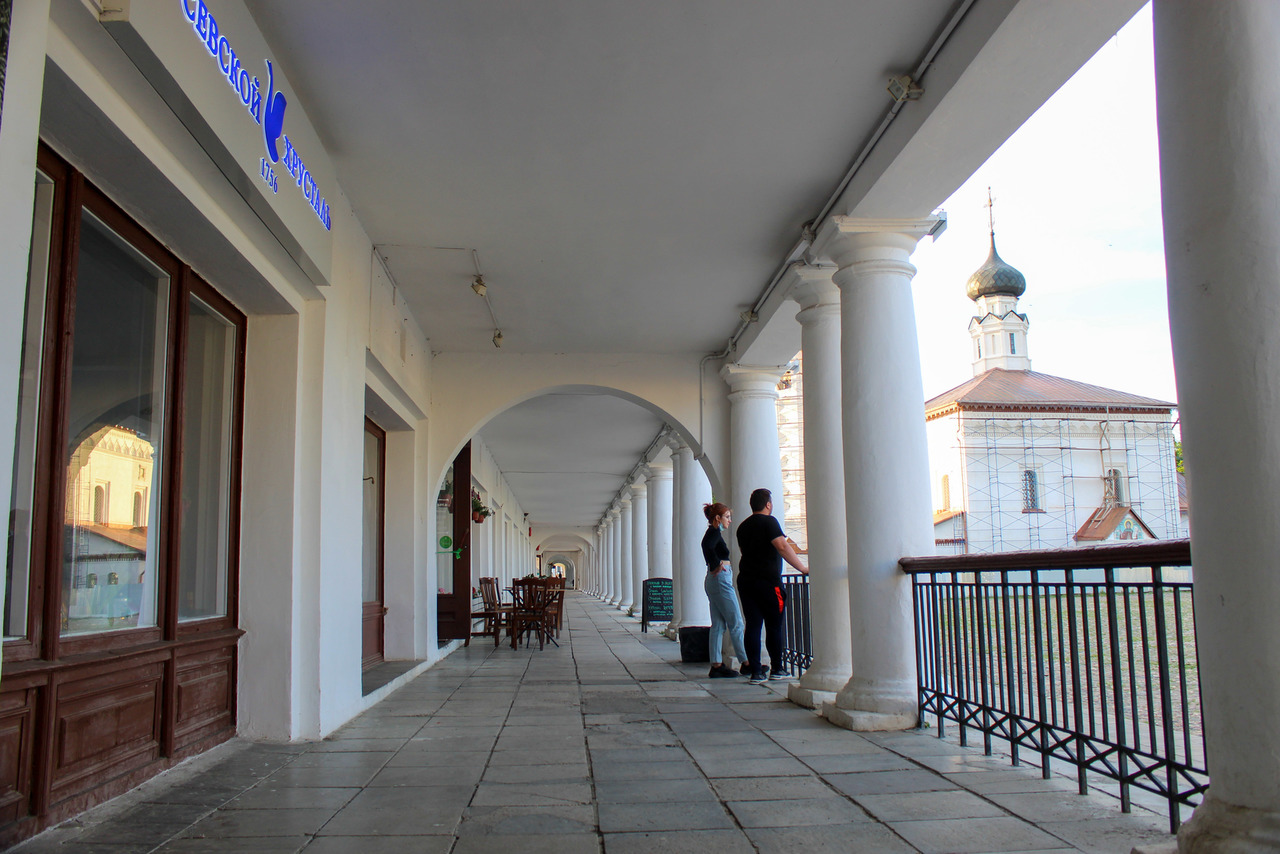
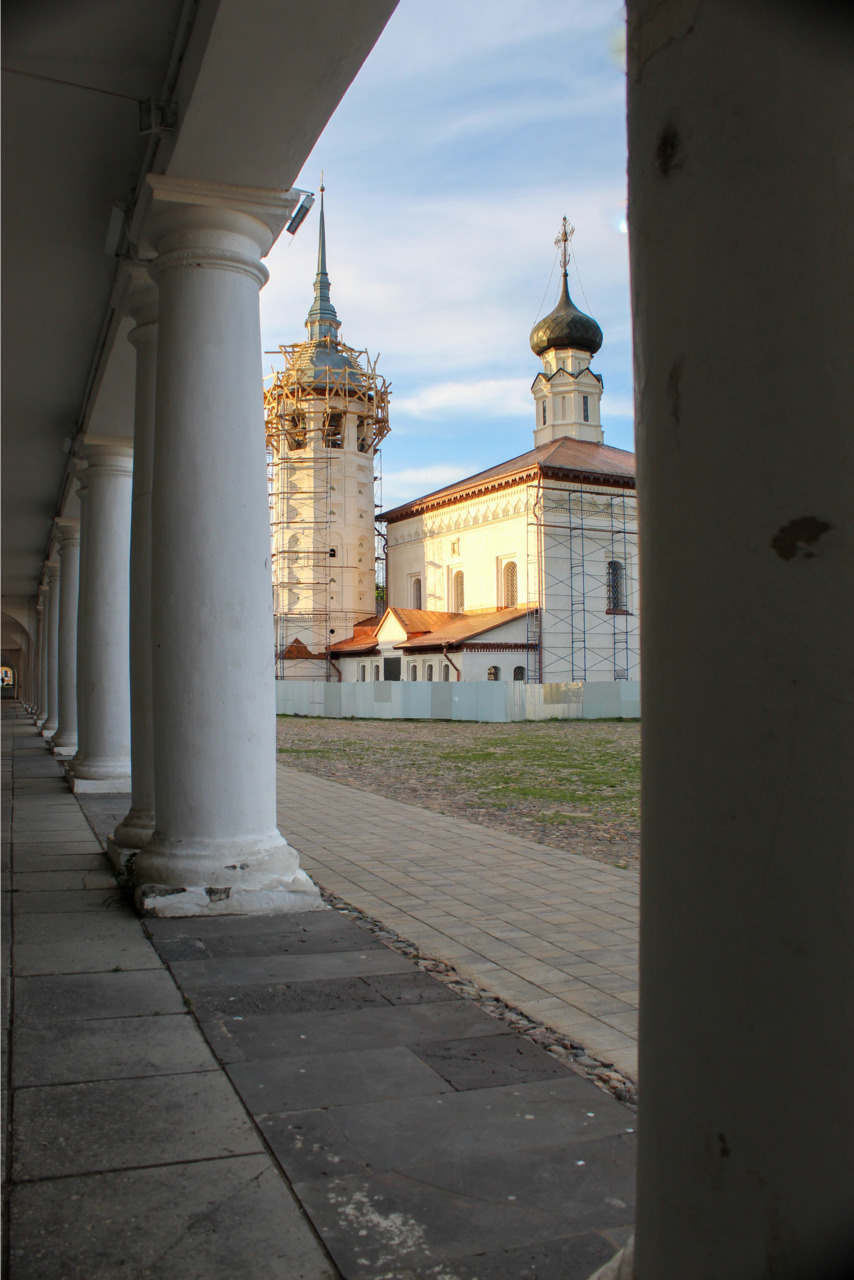
The is a small street behind the rows of Commercial building.
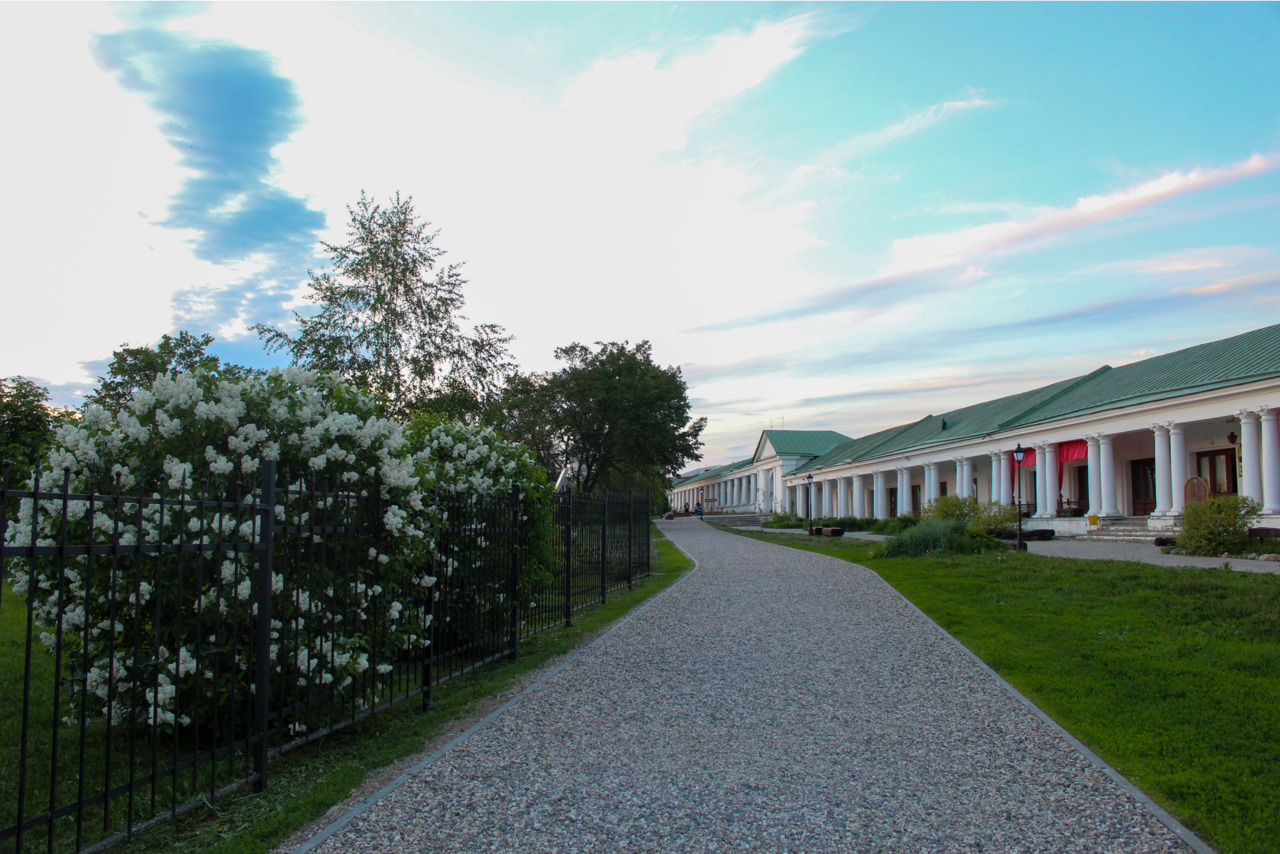
The Kremlin of Suzdal
The Suzdal Kremlin is the oldest part of the Russian city of Suzdal, dating from the 10th century.
Like other Russian Kremlins, it was originally a fortress of citadel and was the religious and administrative centre of the city. It is most notably the site of the Cathedral of the Nativity.
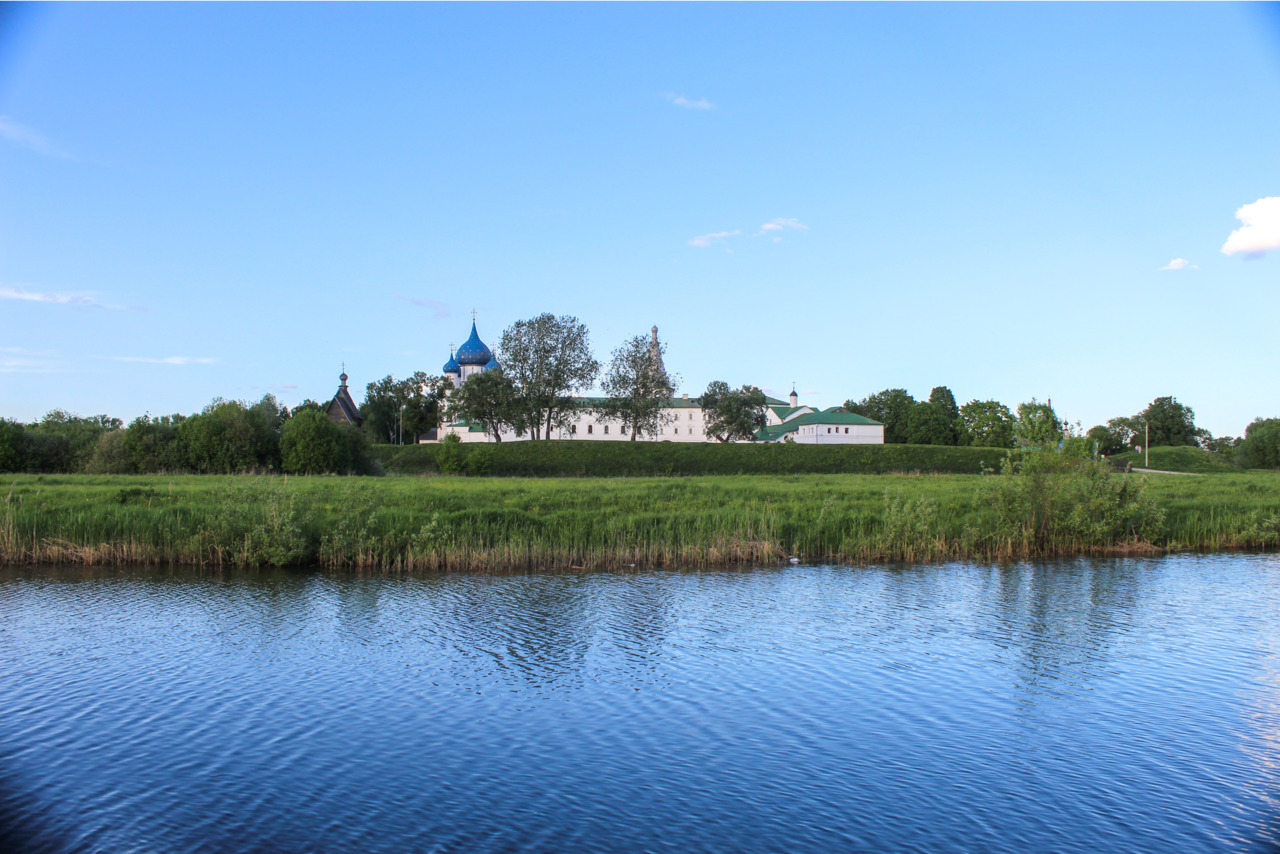
Four artificial ramparts of the ancient Suzdal Kremlin have been preserved.
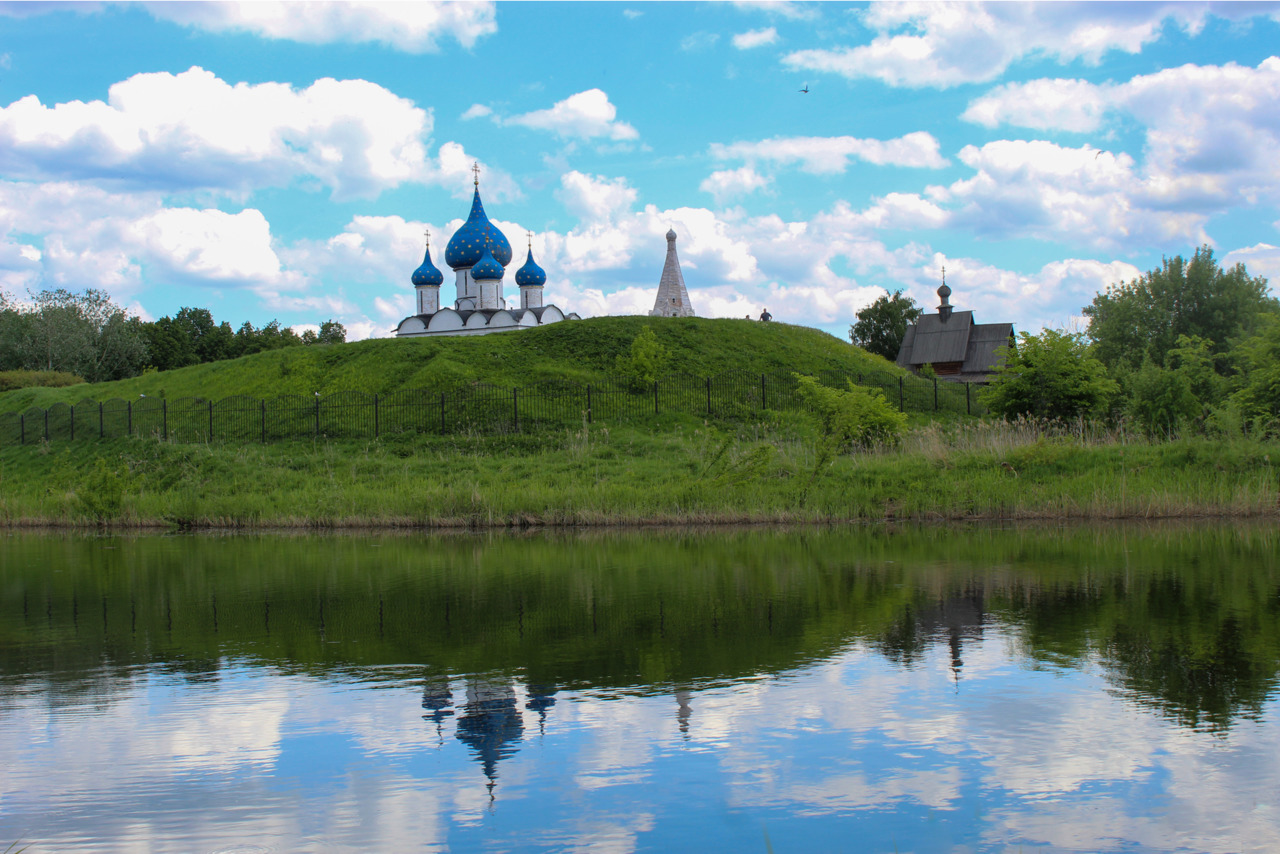
The old Kremlin has not been preserved. Now we see the Nativity Cathedral, built in the 13—16 centuries, and the Episcopal Chambers, built in the 15—18 centuries.
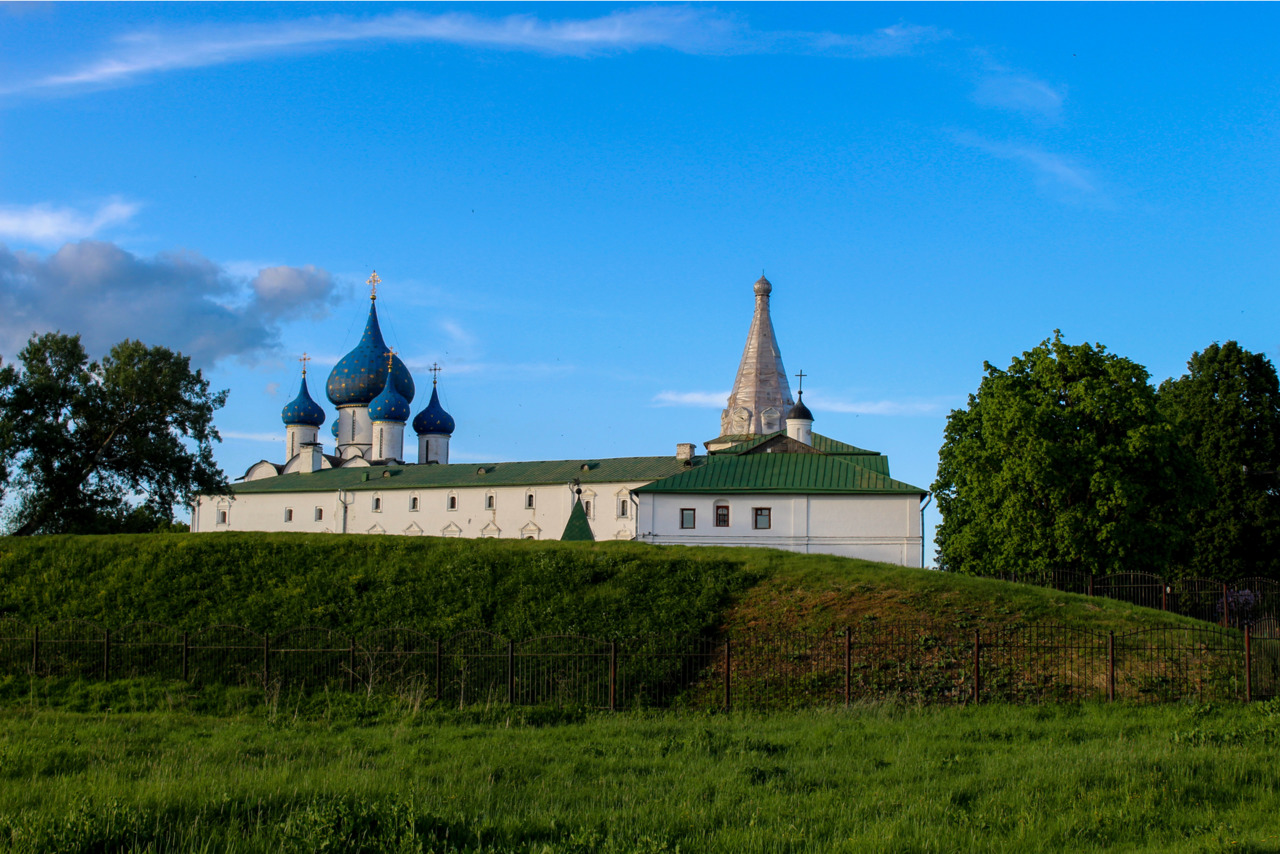
The Suzdal Kremlin is located in a picturesque place. This can be see in the paintings of famous artists.
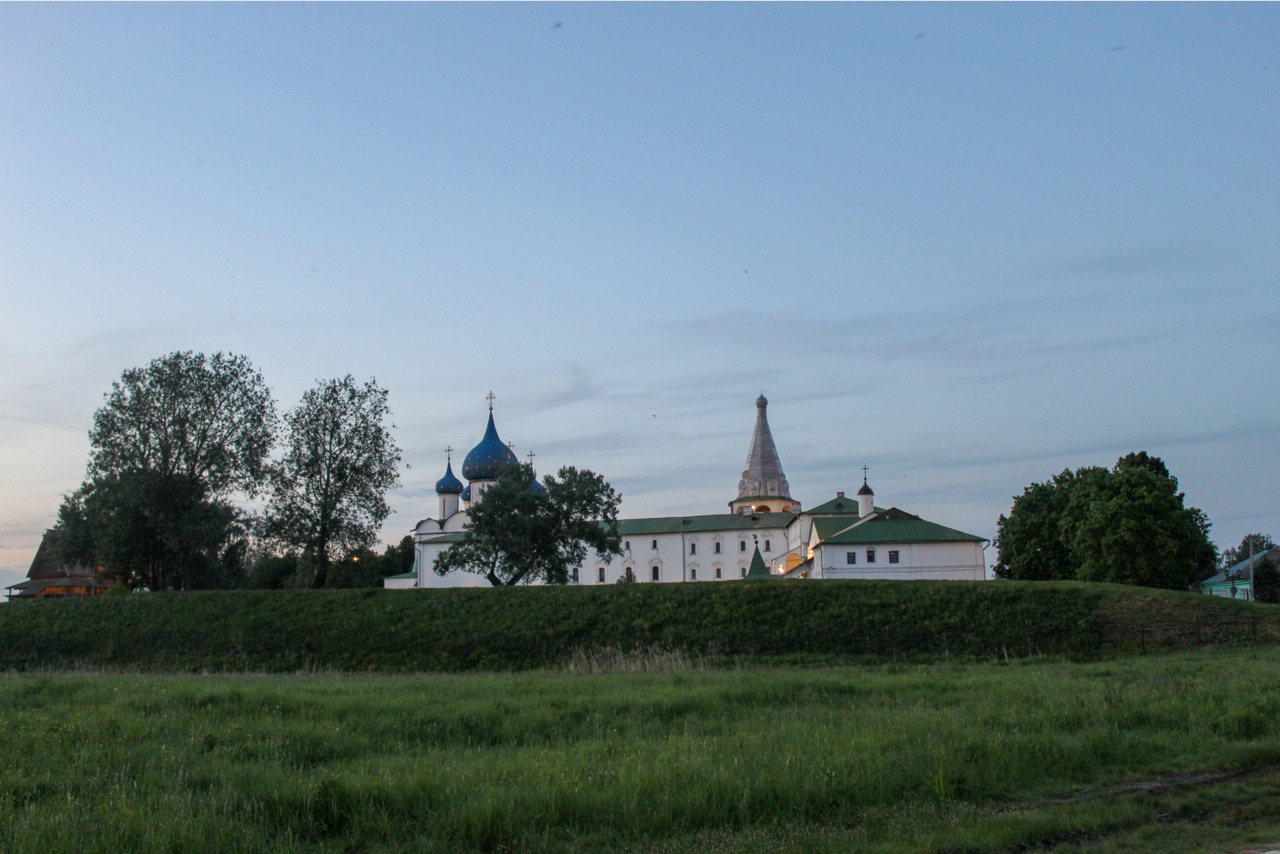
The bell tower and the Cathedral of the Nativity of Christ are high, their domes are visible from different points of the city.
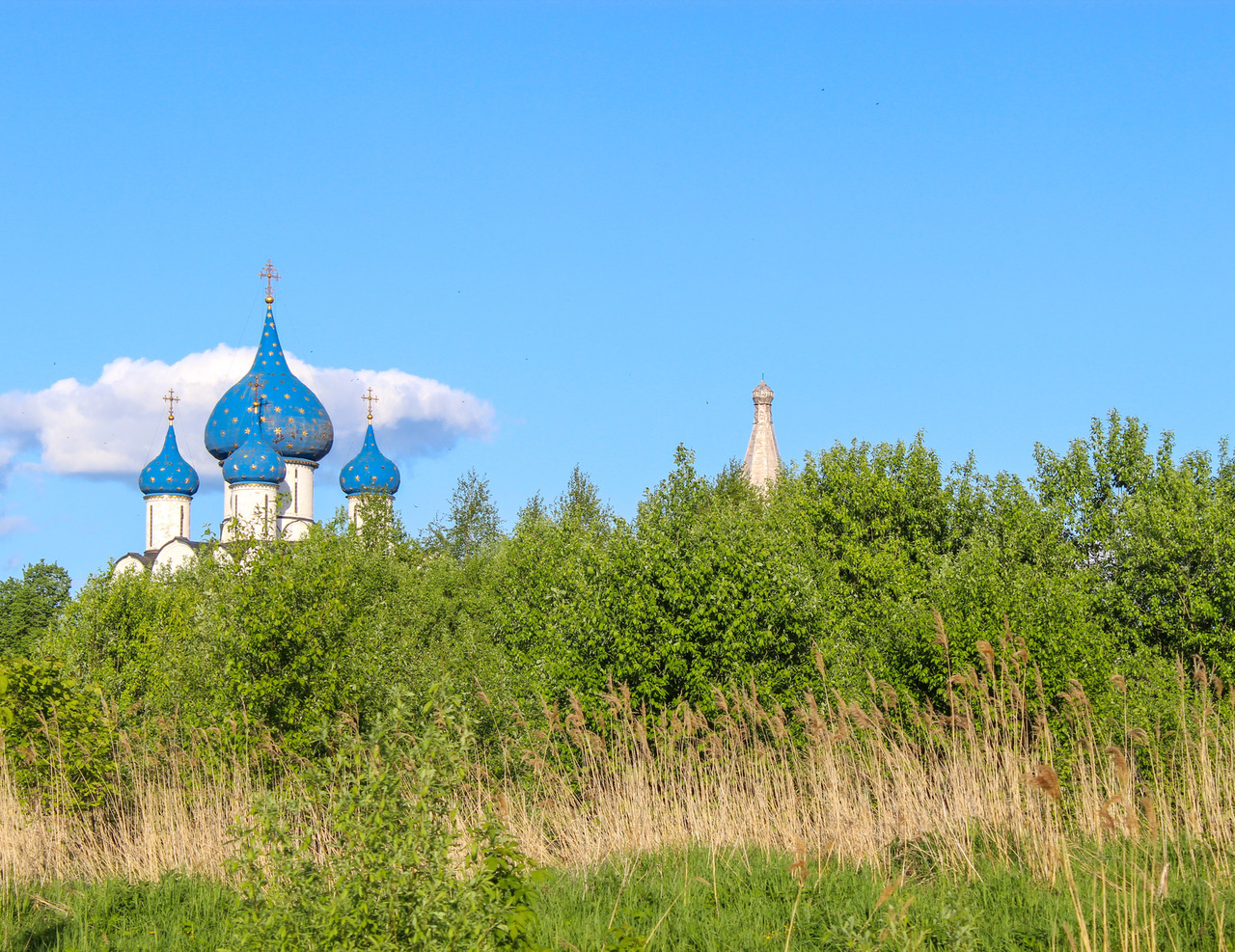
View of the Kremlin from the Ilyinsky Meadow on the other bank of the Kamenka River.
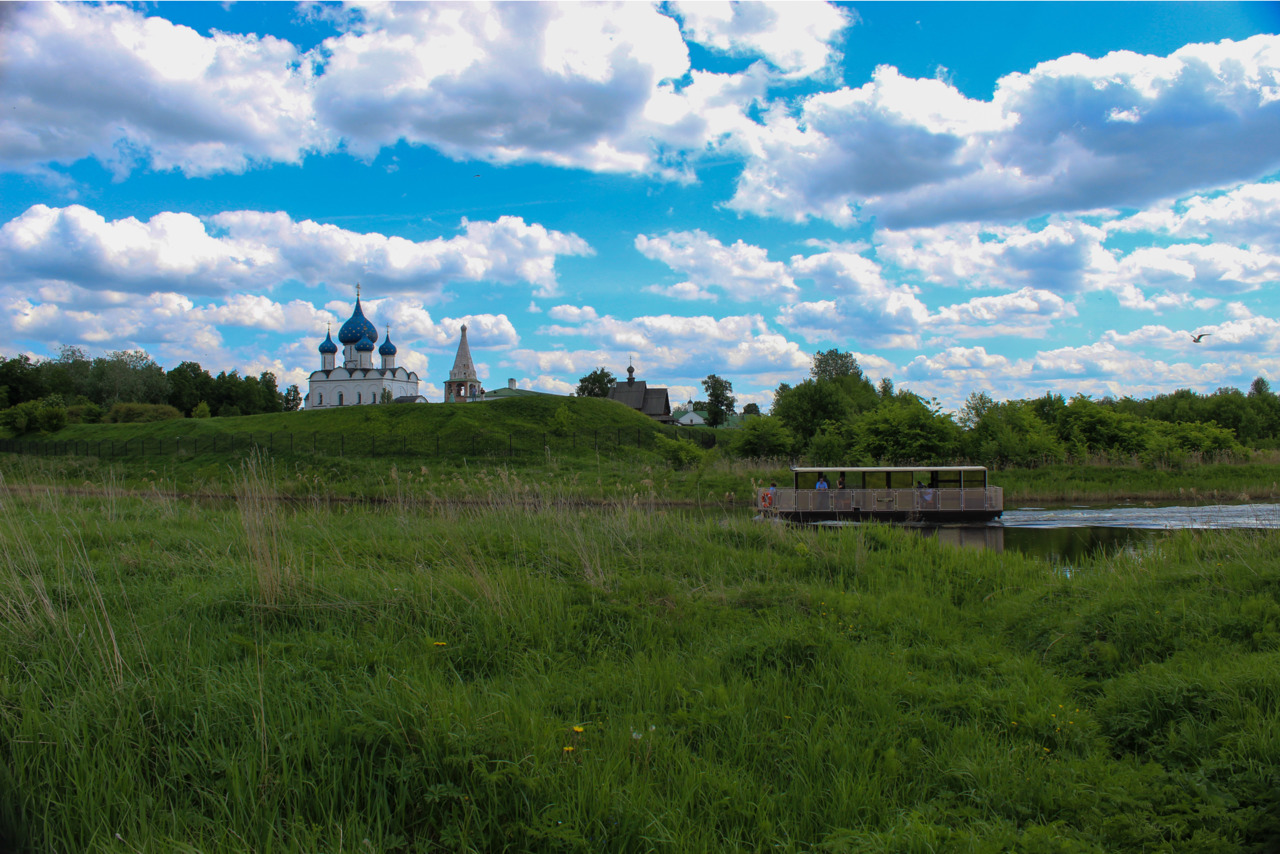
In the Suzdal Kremlin there is a wooden St. Nicholas Church, which was brought from the village of Glotovo, Vladimir region.
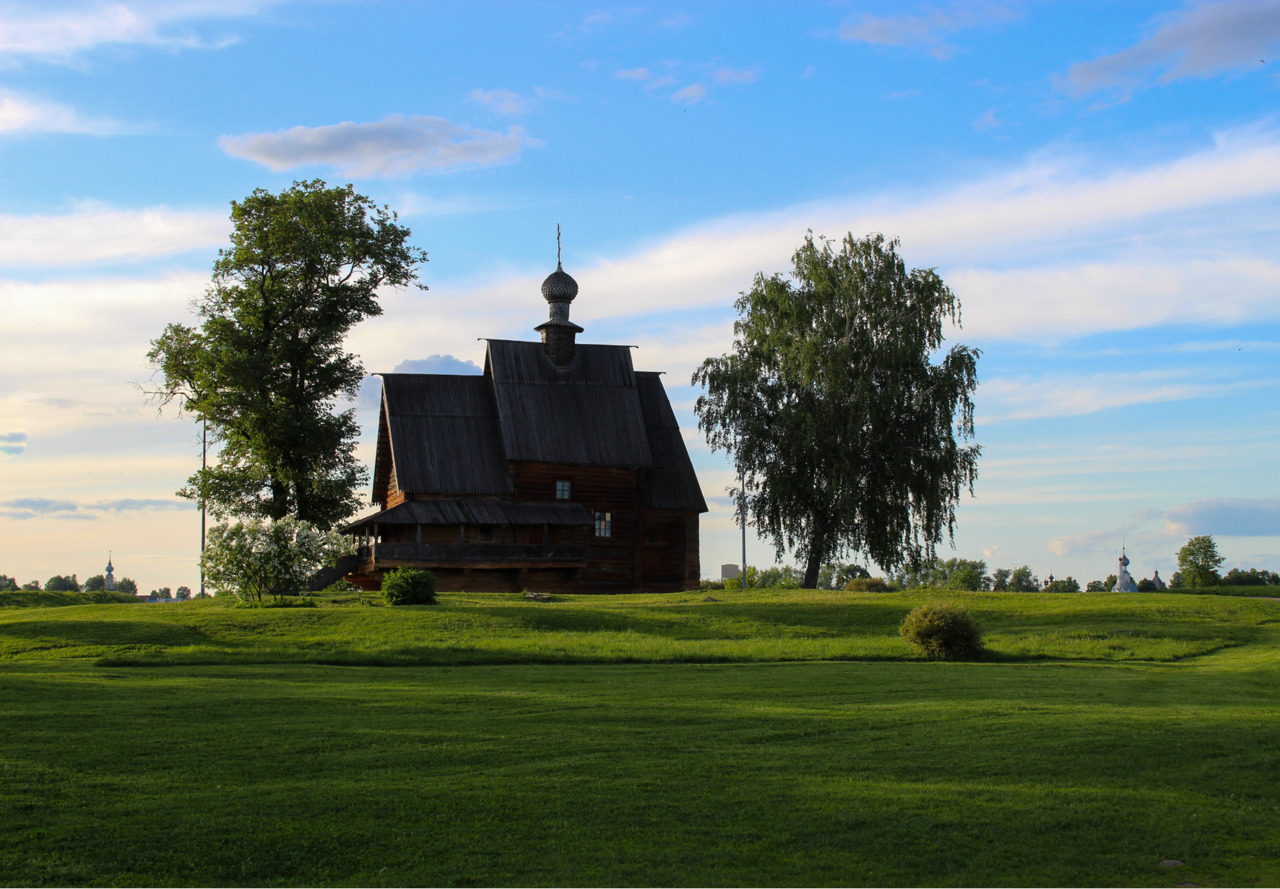
St. Nicholas Church was brought to Suzdal in 1960 and restored. It belongs to the Museum of Wooden Architectiure in Suzdal.
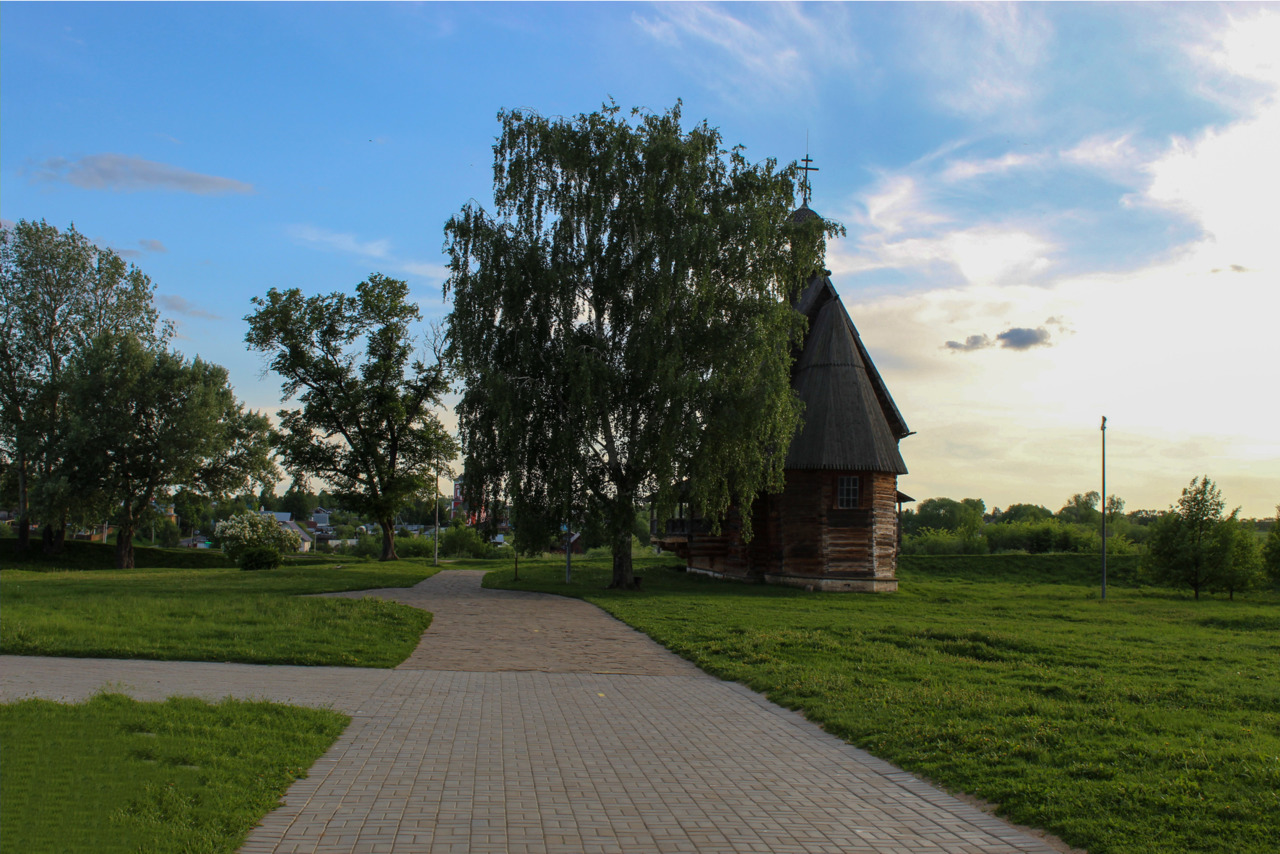
St. Nikolas Church is an architectural monument of the mid-18th century and an object of cultural heritage of the peoples of the Russian Federation.
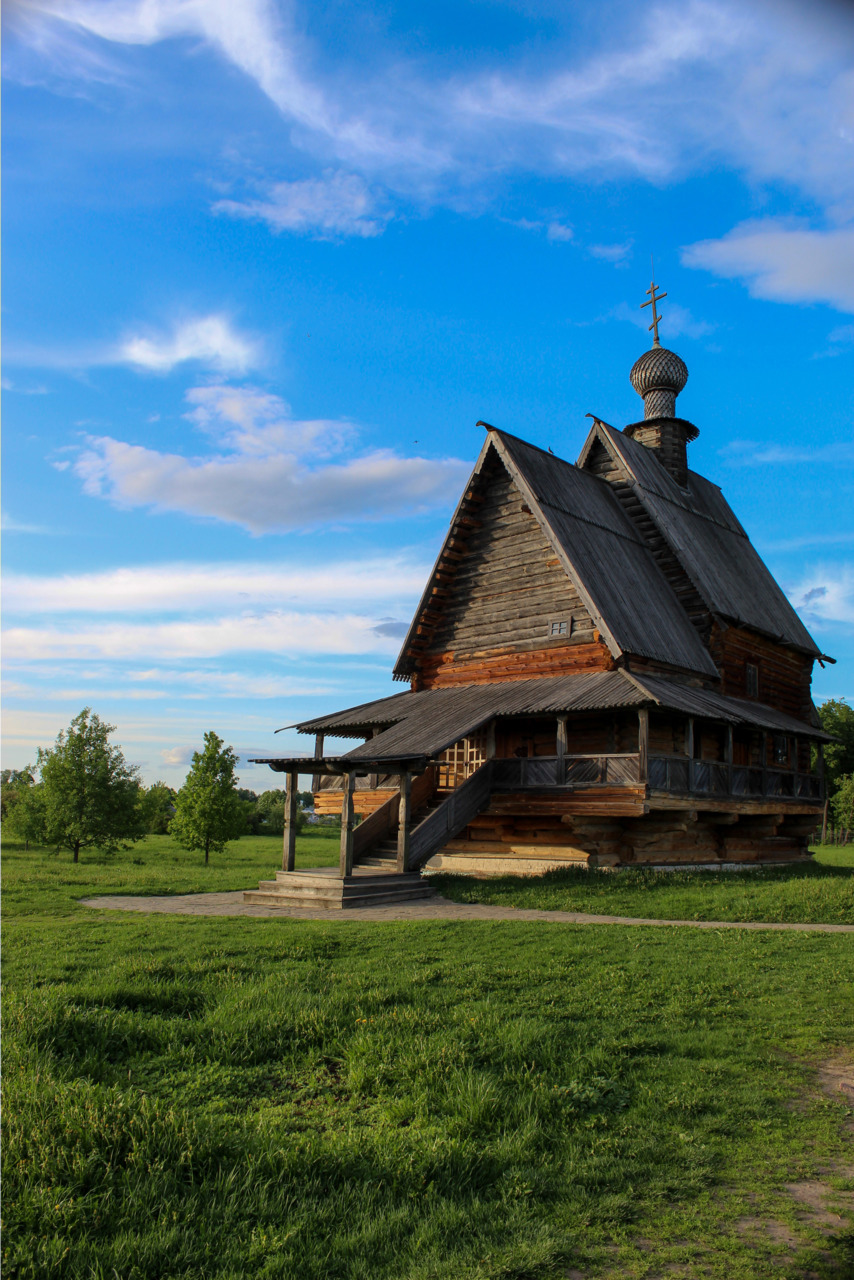
Monasteries of Suzdal
Five monasteries have been preserved in Suzdal. Most of the monasteries of the city were destroyed during the Soviet era.
Alexander Monastery
The St. Alexander Orthodox Monastery is located on the left bank of the Kamenka river. It was founded by Grand Duke Alexander Nevsky in 1240. The architectural ensemble of the monastery, which we see, was built in the 17th centure.
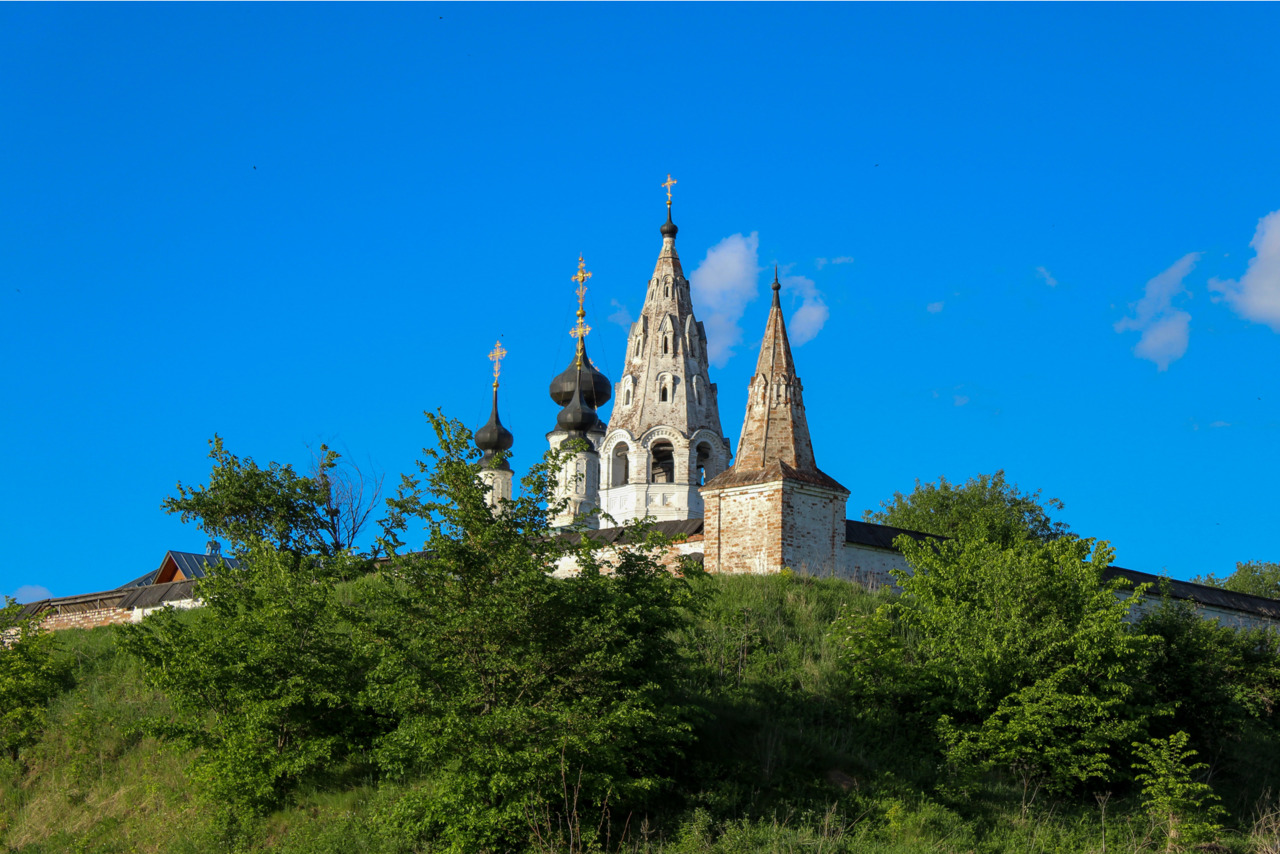
The monastery standards on a hill, next to the Kamenka river.
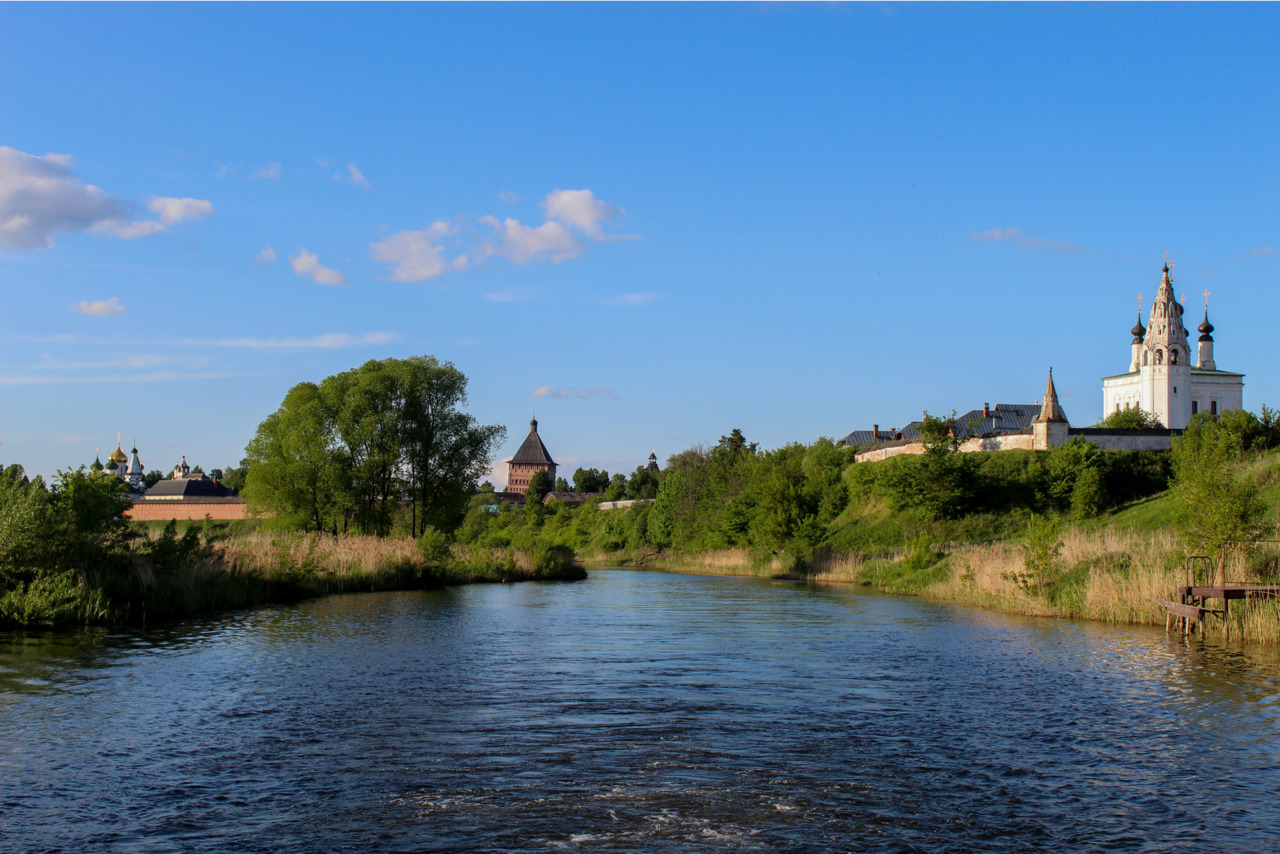
In 1764, the Alexander Monastery was closed by order of Empress Catherine II. The Church of the Ascension of the `lord became a parish.
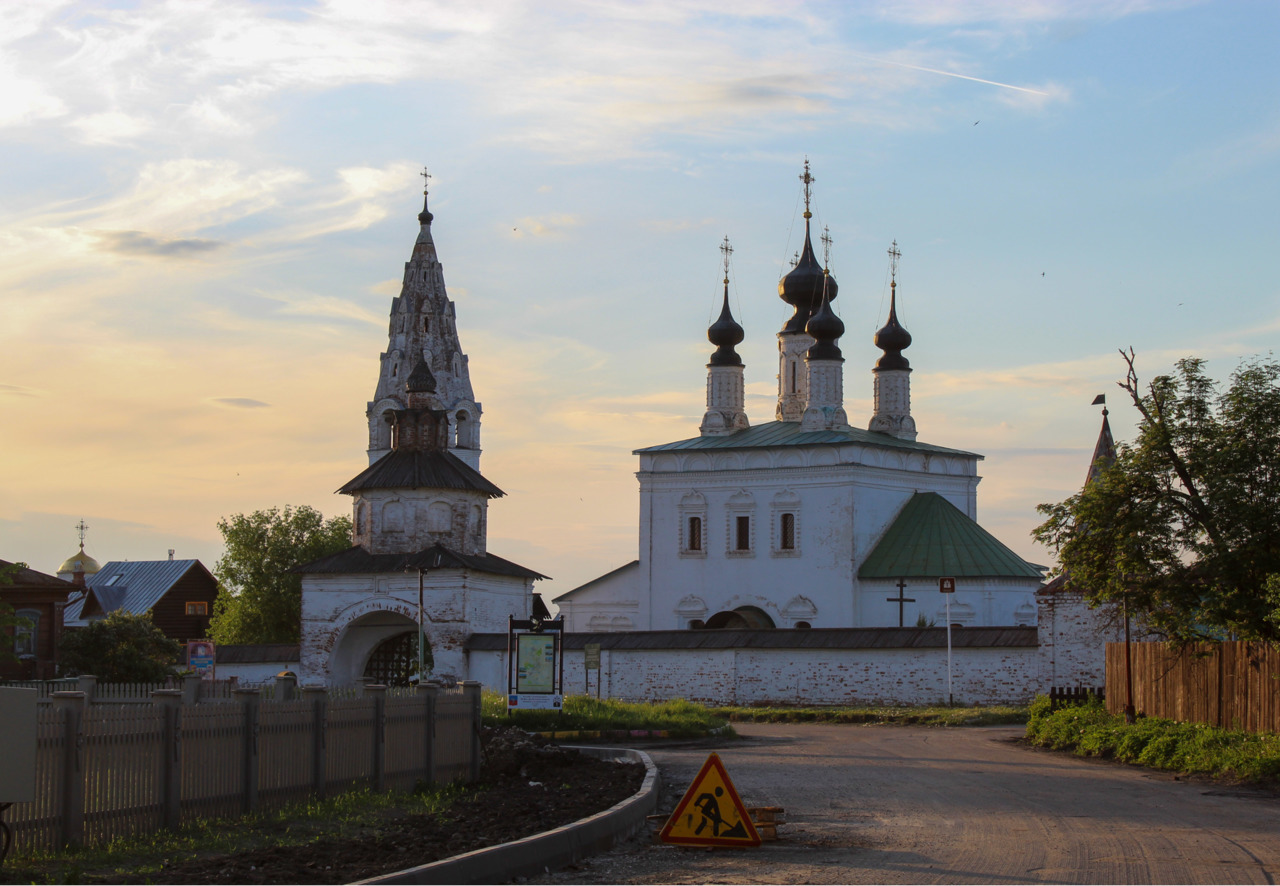
The Holy Gate and the wall with decorative tower were build in the 18th century.
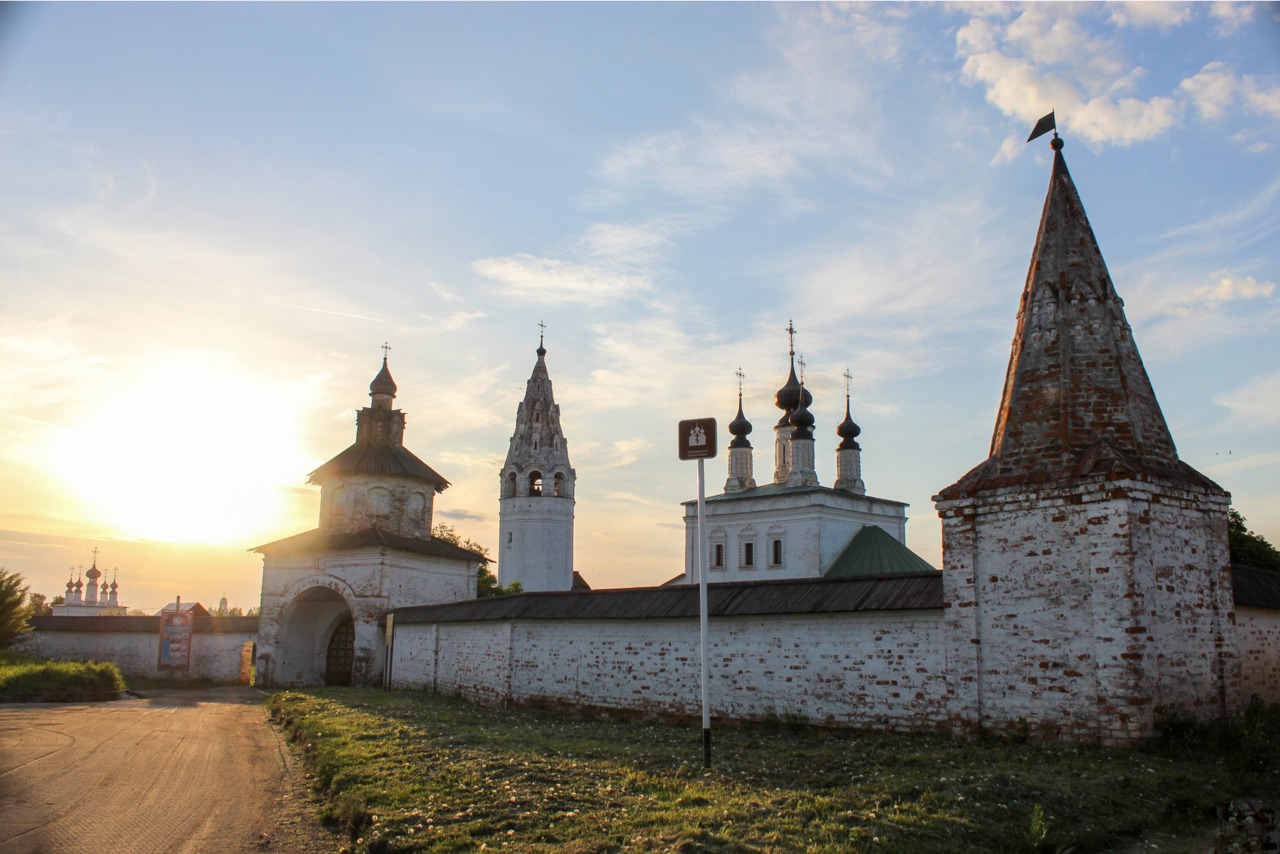
The monastery is an object of cultural heritage of the peoples of the Russian Federation.
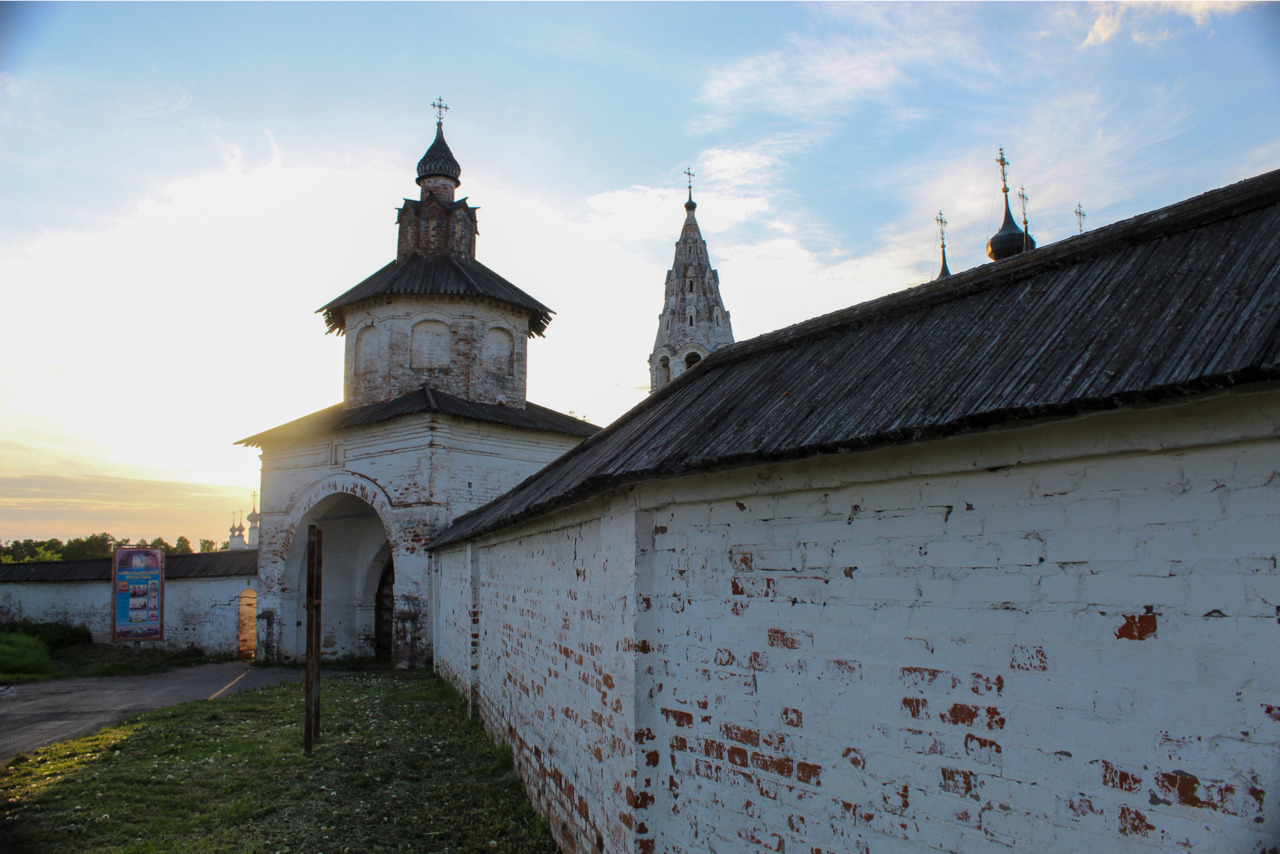
Pokrovsky Convent
The Pokrovsky Convent was founded in 1364. The ancient building has not been preserved to this day.
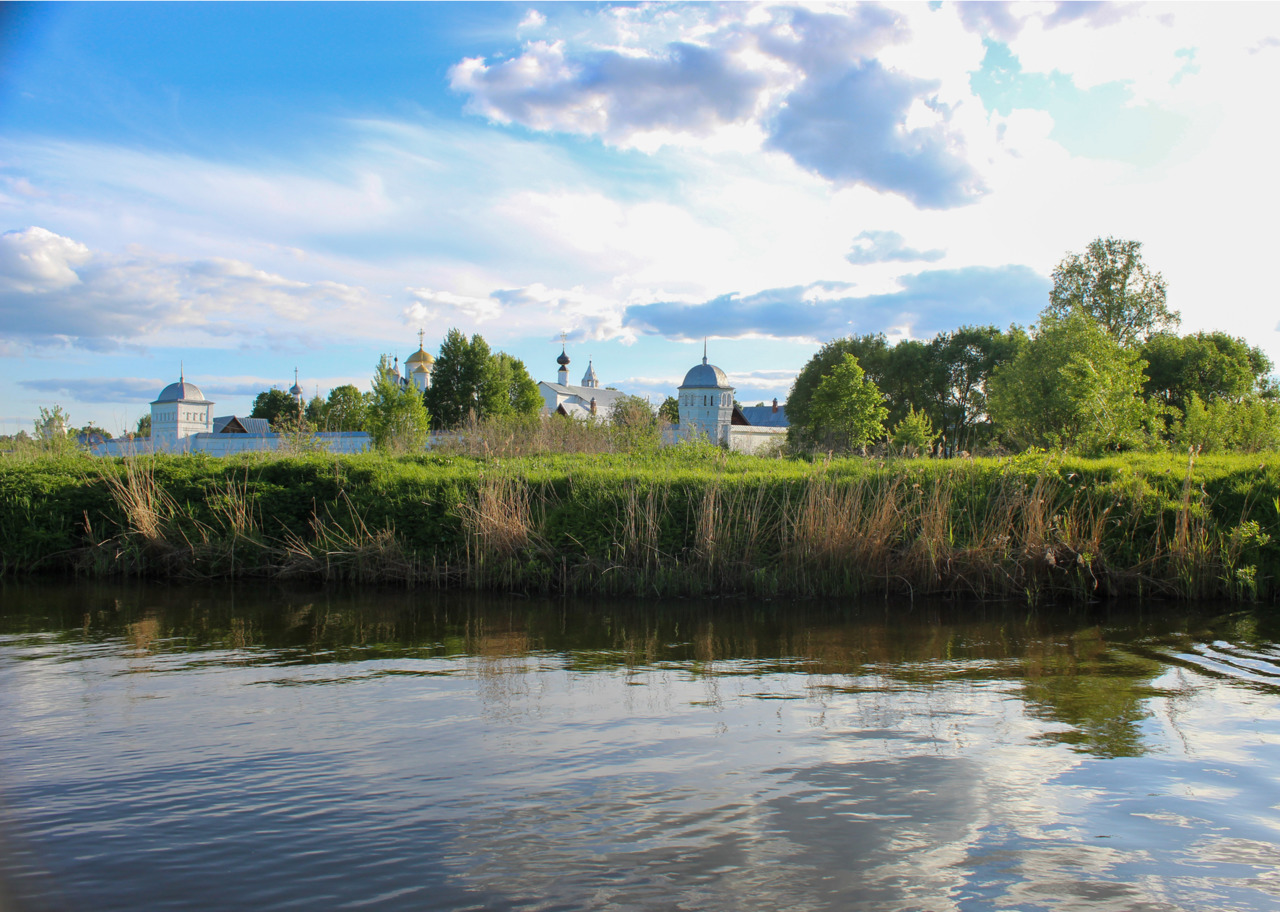
The architectural ensemble of the monastery was finally formed in the 18th century. The intercession Cathedral, the Holy Gate, the gate of the Annunciation Church, the Refectory with the Conception Church were built in the 16th century.
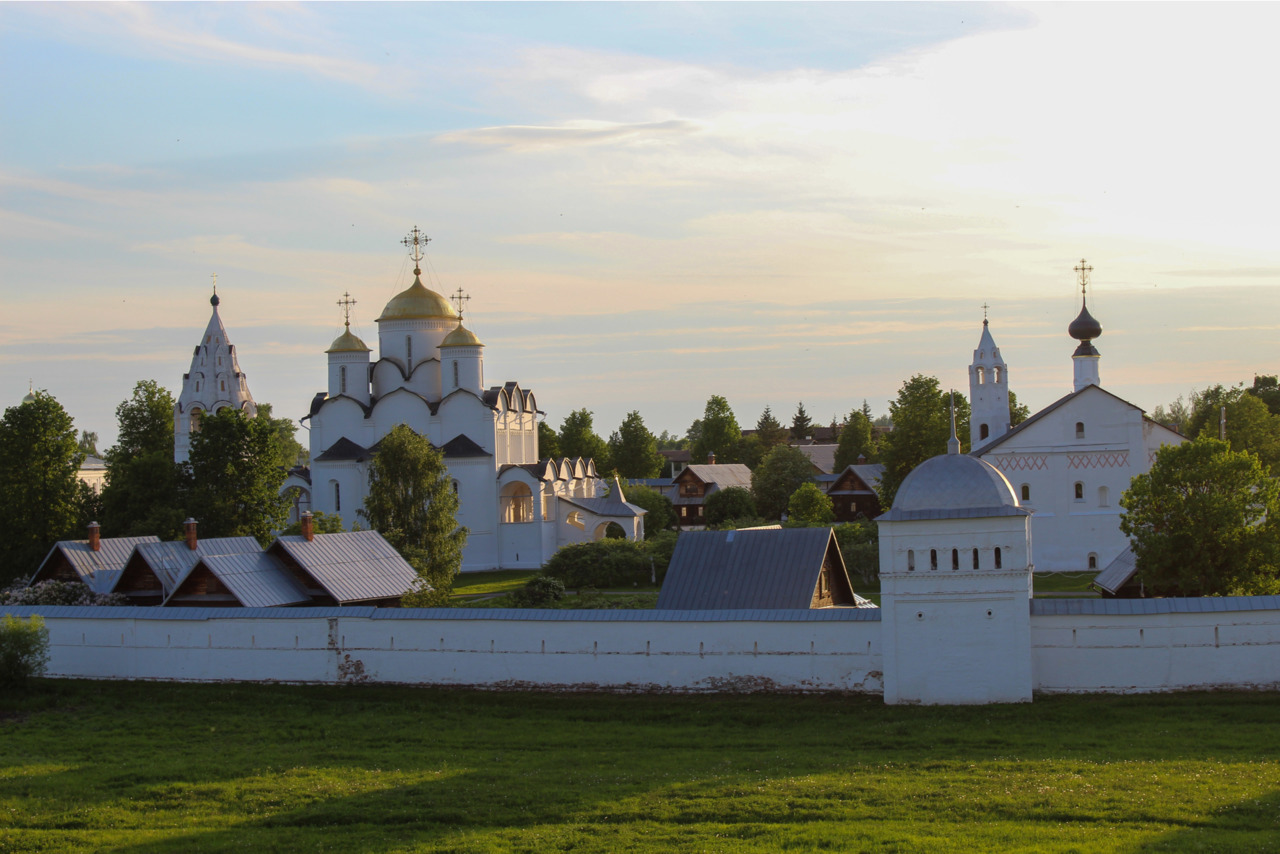
The original appearance of the intercession Cathedral was restored in 1962. The extension to the cathedral were removed.
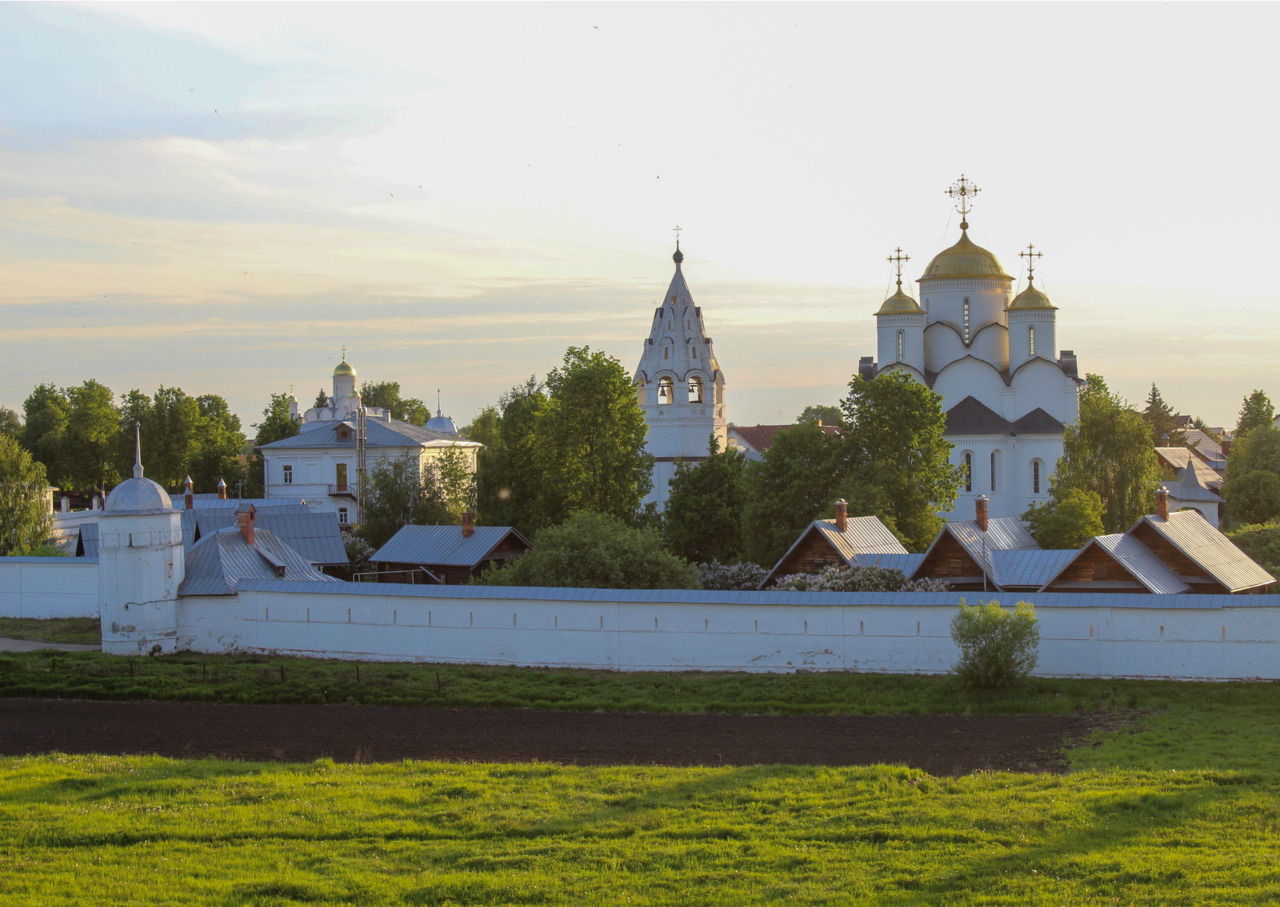
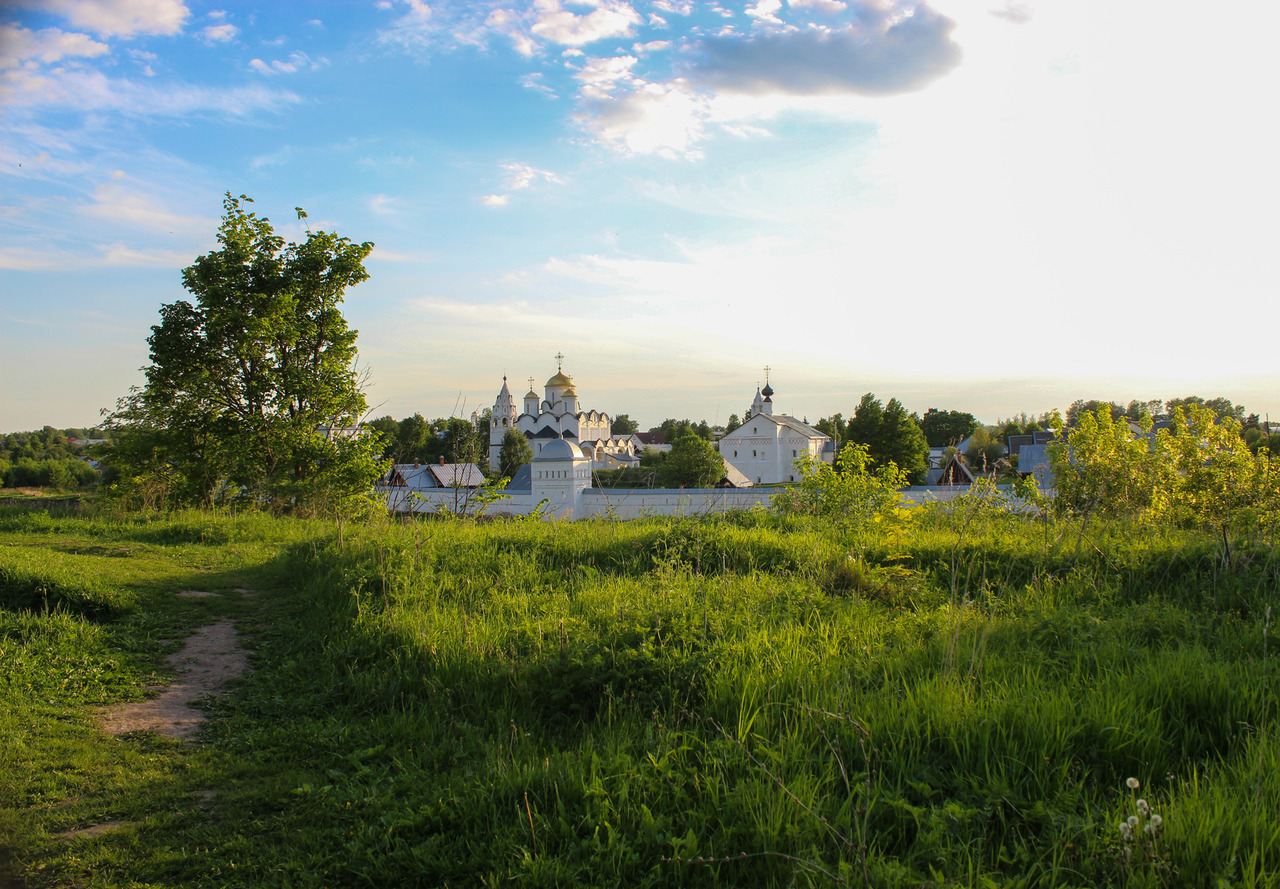
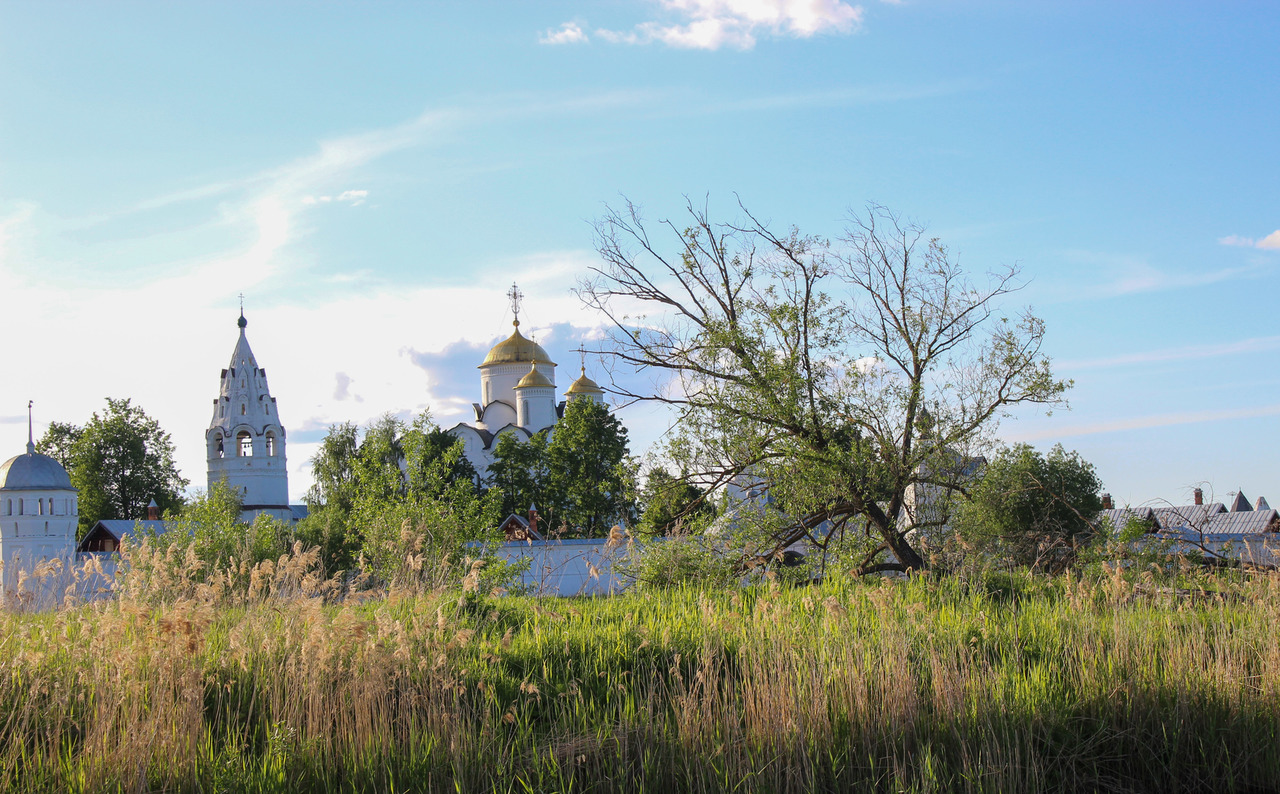
Rizopolozhensky Monastery
The Rizopolozhensky Monastery was founded in 1207 by Bishop John of Suzdal.
Бесплатный фрагмент закончился.
Купите книгу, чтобы продолжить чтение.
